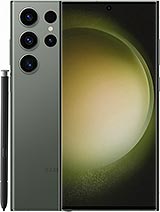-

- Home
- News
- Providers
 Vodafone Oman
Vodafone Oman Emirates Telecom
Emirates Telecom  Ooredoo Om
Ooredoo Om Ooredoo Qa
Ooredoo Qa stc Bahrain
stc Bahrain Orange Egypt
Orange Egypt Mobily
Mobily Zain Jo
Zain Jo omantel
omantel STC
STC Emirates Du
Emirates Du Asiacell
Asiacell Etisalat Egypt
Etisalat Egypt  Telecom Egypt
Telecom Egypt jawwal
jawwal Orange Jo
Orange Jo Umniah
Umniah Zain Sa
Zain Sa Bahrain Batelco
Bahrain Batelco Zain Bh
Zain Bh Wataniya palestine
Wataniya palestine Kuwait Viva
Kuwait Viva  Zain Kw
Zain Kw Vodafone Qa
Vodafone Qa MTN Syria
MTN Syria Syriatel
Syriatel Sabafon
Sabafon Zain Iq
Zain Iq MTN Yemen
MTN Yemen Ooredoo Kw
Ooredoo Kw Vodafone Egypt
Vodafone Egypt  Samatel
Samatel
- Phones
 Huawei
Huawei Samsung
Samsung MOTOROLA
MOTOROLA Alcatel
Alcatel Lenovo
Lenovo LG
LG Nokia
Nokia Sony Ericsson
Sony Ericsson HTC
HTC BlackBerry
BlackBerry Siemens
Siemens Acer
Acer Sony
Sony Asus
Asus VK
VK APPLE
APPLE BenQ-Siemens
BenQ-Siemens Sagem
Sagem Eten
Eten HP
HP Panasonic
Panasonic Amoi
Amoi Toshiba
Toshiba Sharp
Sharp Sonim
Sonim Bird
Bird Mitac
Mitac Philips
Philips Vertu
Vertu Pantech
Pantech Micromax
Micromax Maxon
Maxon Haier
Haier I-mate
I-mate Gigabyte
Gigabyte I-mobile
I-mobile Kyocera
Kyocera BenQ
BenQ Microsoft
Microsoft Telit
Telit Connect
Connect Sendo
Sendo SEWON
SEWON Mitsubishi
Mitsubishi DELL
DELL NEC
NEC Thuraya
Thuraya Neonode
Neonode Qtek
Qtek Be
Be Bosch
Bosch Palm
Palm MWG
MWG XCute
XCute Fujitsu Siemens
Fujitsu Siemens WND
WND INQ
INQ O2
O2 Innostream
Innostream Benefon
Benefon Google
Google
- Tablets
- Compare Cell Phones
- AI tools directory
- About us
- O Plus: The Postpaid Plan That Delivers More..
- e& joins forces with NYU Abu Dhabi to advance 6G research..
- Level Up with the all-new O Plus by Ooredoo: More Benefits, Same Price, No..
- Ooredoo Welcomes New Chairman Sheikh Nasser Bin Hamad Bin Nasser Jassim..
- Ooredoo and Oman Chamber of Commerce Sign Landmark MoU to Drive Business Growth..
- Empowered & Unstoppable: Springboard and SpringForward Graduates Take Centre..
- Ooredoo Bags Bronze for Tech Excellence at 2024 Stevie® Awards..
- Ooredoo and Tech Mahindra Strengthen Partnership to Excel in Digital Customer..
- Ooredoo Wins Big in The Telecom Category at The COMEX Excellence in Technology..
- Get A Fancy New Number While Giving Back with Ooredoo’s Vanity Number Auction..
Mobilk.net offered in
العربية



















